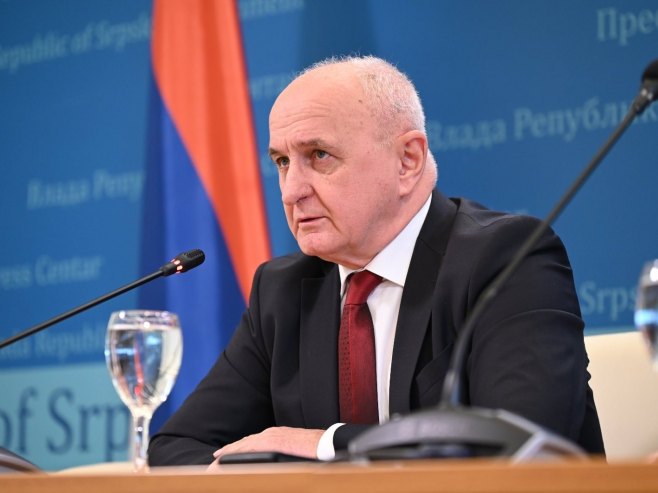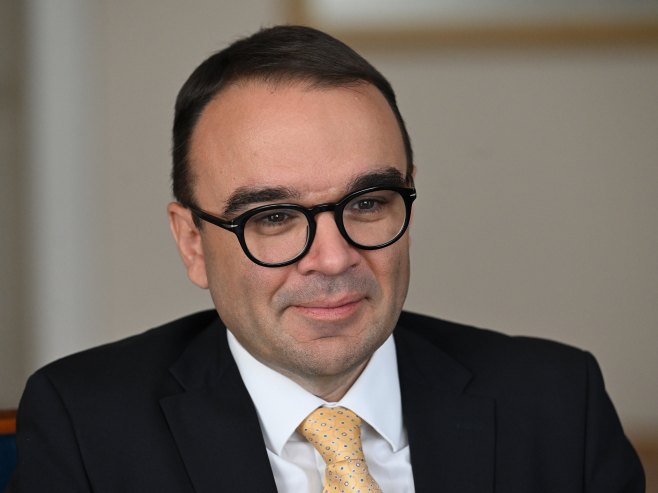The interest of official Brussels, Berlin, and London is to demonstrate at all costs that BiH is institutionally capable of resolving the current political crisis, so that this can serve as an argument for opening negotiation chapters. If the crisis persists, BiH will not only show its incapacity but will also put its candidate status into question, which would ruin plans for establishing a new model of foreign supervision in BiH, stated Professor Aleksandar Vranješ.
Vranješ asked whether London, Berlin, and Brussels even still see BiH as a future member of the EU, or if they are simply looking for a way to create a new form of their supervision through EU integration, without the UN Security Council, the USA, Russia, or China, a model that could be conditionally called “Brussels supervision.”
The author’s text by Professor Vranješ is fully conveyed by Srna:
In recent days, the UN Security Council has dealt with BiH three times – twice in closed consultations and once through a joint statement of all member states.
Based on what has been made public, it is evident that Christian Schmidt and his neocolonial administration in BiH are losing the support of the USA. The United Kingdom and France continue to insist at the UN on maintaining the OHR, and when adding the support the false high representative enjoys in his own country, it becomes clear who still supports foreign neocolonial governance in BiH.
Additionally, Schmidt’s recent statement that the OHR would only close when BiH becomes a full member of the EU – meaning never – raises the question: do London, Berlin, and Brussels even still see BiH as a future EU member, or are they simply seeking a way to create a new form of supervision through EU integration, bypassing the UN Security Council, the USA, Russia, and China, conditionally called “Brussels supervision.”
This would create a new model of imposition and reconfiguration of BiH through EU reforms led by the trio – London, Brussels, and Berlin. If we test this hypothesis through the following listed facts, we get an interesting scenario.
The European Union insists on selective respect for the rule of law in BiH. According to their view, the false high representative may interfere with the judiciary, abusing it for political purposes, but only against leaders from Republika Srpska, who are then expected to respect these fabricated processes for the EU to consider it rule of law.
In translation, the fabricated verdict against the president of Republika Srpska, Milorad Dodik, must be respected, and three presidents from Republika Srpska must be prosecuted under Schmidt’s newly invented crime of “attack on the constitutional order.”
The European Commission, in its 2019 Opinion on the progress of BiH, condemned the use of so-called “Bonn powers,” yet today not only respects these dictatorial powers but also categorizes their application as a condition for BiH’s further progress toward the European Union.
Of course, not explicitly, but more through avoiding context, not mentioning Schmidt’s impositions and political processes, simplifying the complex political situation to secessionism and disrespect for the rule of law.
Germany went even further and, in the Federal Government’s response to parliamentary questions from the AfD, stated that Schmidt has improved the rule of law in BiH.
Naturally, to any even remotely objective observer, it is clear that Western supervision has turned BiH into a colony, and that there is neither rule of law nor the European democratic achievements that the trio – London, Berlin, and Brussels – declaratively promote.
The interest of official Brussels, Germany, and London is to demonstrate at all costs that BiH is institutionally capable of resolving the current political crisis, to use it as an argument for opening negotiation chapters. If the crisis persists, BiH will not only show incapacity but will also specifically jeopardize its candidate status, which ruins plans for establishing a new model of foreign supervision in BiH.
To prevent this, the trio – Berlin, London, and Brussels – engaged in reconfiguring power at the BiH level to create a new pro-European coalition for the needs of the new “Brussels supervision.”
The Bosniak parties in power needed little convincing for this scenario. Disappointed by the current attitude of the USA toward BiH, they have turned their eyes toward London, Berlin, and Brussels, which assure them they will support the future centralization of BiH through reforms on the European path, through which the further stripping of Republika Srpska’s competences and transfer of authority to the central government would continue.
From the opposition in Republika Srpska, they expect cooperation on European integration and distancing from Dodik’s sovereignist policy to qualify them for entering power at the BiH level.
Both the Bosniak ruling parties and the opposition from Republika Srpska see the next twelve months as crucial for their political future and survival, so they rushed to form a new coalition as soon as possible.
What complicated the realization of the scenario is the position of HDZ and Dragan Čović. Despite following instructions along the Brussels-Zagreb-Mostar line, their experience teaches them that participation must now be concretely paid for by adopting amendments to the Election Law. On this obstacle, the scenario has seriously faltered.
No matter how much the representatives of the Bosniak “troika” declaratively support legitimate representation of all three constituent peoples, they are aware that doing so would politically sideline themselves from the Bosniak political and social life.
No matter how much Berlin, Brussels, and London reassure Čović that they will support the amendment of the Election Law and even the control over foreign judges in the Constitutional Court of BiH, Čović has shown no willingness to make concessions on trust. Only once the new Election Law ensures legitimate Croatian representation would HDZ consider retying political alliances in the Federation of BiH.
The opposition from Republika Srpska, which has the lowest bargaining value in the coalition talks, would be satisfied just to see Dodik ousted.
Their attempts to condition the coalition with demands like election process integrity, digitalization of voting, acceleration of EU integration, and fight against corruption probably made their Bosniak partners laugh. Never have Bosniak parties negotiated so cheaply with Republika Srpska parties, ready to sign anything just to harm Dodik personally.
Therefore, the scenario of “Brussels supervision” is fully acceptable to the opposition from Republika Srpska.
Although they have the will, what troubles London, Brussels, and Berlin is the lack of political capacity of the Republika Srpska opposition. It is clear that the trends are not in favor of either SDS or PDP, as with their current political course they have no prospects for the 2026 elections. On the other hand, these parties have pinned all their hopes on Dodik’s arrest and the collapse of the ruling coalition in Republika Srpska, where they would emerge as “a necessary evil.”
Thus, both they and political Sarajevo equally lament the dysfunctionality of the BiH state and the fact that BiH institutions do not function on the territory of Republika Srpska.
The opposition is ready to make all concessions, ensure the smooth decision-making process from the Council of Ministers to both houses of the Parliamentary Assembly according to Brussels’ demands, and accept all laws the EU requests, just to see the political collapse of Milorad Dodik and SNSD. And as this does not happen, their nervousness becomes increasingly visible, and their Bosnian patriotism more pronounced.
Thus, they are not bothered that this scenario would lead to a new wave of unitarization under the guise of EU integration and further reduction of Republika Srpska’s autonomy. They have already given guarantees that they will remain loyal to BiH and the Central Election Commission if the 2026 elections in Republika Srpska are conducted under the Serb election law and under the jurisdiction of the Republic Electoral Commission.
In the end, no matter how much London, Berlin, and Brussels forge new plans and dream of new supervisions in BiH, aimed at further diminishing the position of the Serb people, this scenario has many shortcomings.
First, they have underestimated the position of the USA and the fact that the USA has so deeply penetrated the BiH decision-making system over the past three decades that it is hard to imagine they would give it up for the political interests of London, Brussels, and Berlin.
The scenario also neglects the role of the UN Security Council, as well as Russia and China as permanent members, whose influence on the Western Balkans cannot be so easily dismissed.
It overlooks the will of the Serb people, which already suggests that the pro-Bosnian opposition of Republika Srpska will be politically punished in the next elections.
They have also encountered a “tough nut” when it comes to the interests of the Croat people and have yet to find a solution to satisfy HDZ without completely sinking the Bosniak parties in power.
Most importantly, they completely disregard the possibility that Republika Srpska may already have a prepared response to this scenario, to the scheming of London, Brussels, and Berlin, and the betrayal by the Serb opposition. And they certainly will not like that response.
Source: RTRS









